Letter of the President
Thomas Durand, President
Letter of the President
The field of Management in the ERC Grant Scheme
As management scholars, we generally tend to feel that management research does not get proper attention and funding from public agencies and bodies, including the EU Commission. We observe that our domain is still most often aggregated to economics. We also observe that most selection committees covering the field of management are controlled by economists who, we fear, orientate funding towards economics away from management through some form of selection bias. Further, we hear that fields of social sciences related to management research (such as economics, sociology, psychology, anthropology) perceive us as easily and significantly funded by Industry. In other words, not only are we accused of being under the influence if not the control of Business, we would also be seen as extensively funded by the private sector, thus not in real need of public research money. As we know, this is wrong to a large extent but remains deeply rooted in some minds. This may lead, in our view, to the legitimization of selection biases from social scientists sitting in committees covering management topics. We usually further argue that the result of the above is a very low incentive for management researchers to submit proposals to agencies and funding bodies. As we see it, a vicious circle is at work: low prospect, low submission numbers, low number of projects funded. QED.
The above line of reasoning seems to be widely shared in our community. Yet, is it empirically grounded? Are we not jointly ruminating anecdotal pieces of evidence that we bring together from our individual experiences?
I put our case to Jean-Pierre Bourguignon, the ERC president. (He left his position end of December but kindly accepted to dig into the matter even just before leaving). As you know the ERC funds frontier research. For decades, and because research was not a shared responsibility of the EU until 2007, the European Commission left it to member States to fund fundamental (upstream) research and focused its research funding on networks to enhance cohesion and on pre-competitive applied research to contribute to wealth creation. This was done under the Framework Programmes. This lasted until 2007 when the ERC was created after much debates. The 8th Framework Programme bears the name of Horizon 2020. The next one will be called Horizon Europe.
The ERC funds four categories of grants: Starting grants (for young scientists 2 to 7 years after PhD completion; up to 1,5 M€ over 5 years), Consolidator grants (7 to 12 years after PhD; up to 2 M€ over 5 years), Advanced grants (for senior scientists; up to 2,5 M€ over 5 years) and Synergy grants (for 2 to 4 scientists without restrictions of affiliation in a Member State or an Associated country, with the possibility for one of them to come from a country outside the European Research Area; up to 10 M€ over 6 years). It also supports ERC grantees with Proofs-of-concept (smaller grants up to 150 k€) to help them bring their research results get closer to markets or to societal needs The bulk of the ERC funding goes to grants under the responsibility of individual scientists. The full ERC scheme reached 2b€ per year in 2019, and 2.2 b€ in 2020. Since 2007, ERC received about 90000 submissions and funded about 9500 projects of which almost half were Starting grants. This is quite remarkable.
The ERC president kindly accepted to have his ERCEA team look at submissions to ERC by management researchers, and the results of the selection process.
Here are the main findings of the investigation that his team conducted on the matter. (Unless indicated otherwise, typically “in italics with quotes”, the wording is mine: I am thus the only one to be blamed for the formulation and interpretation).
1-Management scientist submissions essentially fall under the SH1 category. Below is the total number per year of proposals submitted (in blue) and funded (in red) for the three main categories (Starting/Consolidator/ Advanced) of SH1: since 2007 for Starting grants and Advanced grants and since 2013 for Consolidator grants.
The above table shows detailed numbers per subcategories of SH1.
While this is the arena where management researchers compete for ERC funding, it appears very clearly that SH1 is predominantly structured around economics.
“The word “economics” prevails as compared to descriptors related to management […]”
DESCRIPTORS — 2020 CALLS
SH1 Individuals, Markets and Organisations
Economics, finance and management
SH1_1 Macroeconomics; monetary economics; economic growth
SH1_2 International management; international trade; international business; spatial economics
SH1_3 Development economics, health economics, education economics
SH1_4 Financial economics; banking; corporate finance; international finance; accounting; auditing; insurance
SH1_5 Labour and demographic economics; human resource management
SH1_6 Econometrics; operations research
SH1_7 Behavioural economics; experimental economics; neuro-economics
SH1_8 Microeconomics; game theory
SH1_9 Industrial organisation; strategy; entrepreneurship
SH1_10 Management; marketing; organisational behaviour; operations management
SH1_11 Technological change, innovation, research & development
SH1_12 Agricultural economics; energy economics; environmental economics
SH1_13 Public economics; political economics; law and economics
SH1_14 Competition law, contract law, trade law, Intellectual Property Rights
SH1_15 Quantitative economic history and history of economics; institutional economics; economic systems
DESCRIPTORS — 2021 CALLS
SH1 Individuals, Markets and Organisations
Economics, finance, management
SH1_1 Macroeconomics; monetary economics; economic growth
SH1_2 International trade; international management; international business; spatial economics
SH1_3 Development economics; structural change; political economy of development
SH1_4 Finance; asset pricing; international finance; market microstructure
SH1_5 Corporate finance; banking and financial intermediation; accounting; auditing; insurance
SH1_6 Econometrics; operations research
SH1_7 Behavioural economics; experimental economics; neuro-economics
SH1_8 Microeconomic theory; game theory; decision theory
SH1_9 Industrial organisation; entrepreneurship; R&D and innovation
SH1_10 Management; strategy; organisational behaviour
SH1_11 Human resource management; operations management, marketing
SH1_12 Environmental economics; resource and energy economics; agricultural economics
SH1_13 Labour and demographic economics
SH1_14 Health economics; economics of education
SH1_15 Public economics; political economics; law and economics
SH1_16 Historical economics; quantitative economic history; institutional economics; economic systems
The only “truly” management subcategory, out of the 14 subcategories in SH1 is SH1-10 “management, marketing, organizational behavior, operations management”. SH1-9 (in 2020 call) is misleading as we know that industrial organization stands for industrial economics. Hence despite the words strategy and entrepreneurship which seem to refer to management topics, this item is again clearly for economics. Similarly, SH1-11 (in 2020 call) is misleading as economics of technical change stands behind technological change, innovation and R&D. In short, this means that the management submission footprint in ERC appears primarily in SH1-10 and possibly, though to a much smaller extent, in SH1-9 and 11.
The number of submissions from management to ERC, as part of SH1 is low, although not ridiculously low, with 85 submissions in SH1-10 between 2016 and 2018. This represents 11,2% of the 760 submissions received. Adding SH1-9 and 11 raises the figure to 25,4% which is an upper estimate.
However, and more strikingly, the success rate in subcategory SH1-10 is impressively low, namely 2 projects funded out of 85 submissions, hence a rate of 2,3 %!
This suggests that the experts on the panel lean towards economics more than management.
This suspicion is even strengthened by the analysis of the evolution over time of the “descriptors” used to label the subcategories of SH1:
“The number of descriptors for Management and related fields was slightly higher at the beginning of Horizon 2020 but subsequently the Scientific Council aggregated some fields (on the basis of the small number of proposals received for some fields, and recruitment & workload per panel member);”
“For the 2021 Calls the Scientific Council approved the introduction of two descriptors (SH1_10 and SH1_11) instead of only one previously (SH1_10); the other fields continue to be listed”
Again, this suggests a panel of experts ready to aggregate and isolate non-economics topics. The governance of ERC reacted by reintroducing another management subcategory for 2021.
A last element of analysis stems from the use of the list of keywords that I was asked to provide to search for management-related projects in the ERC database.
Here is the list that I provided for the sake of the exercise: Management, organization, organizational behaviour, corporate social responsibility, TQM, business strategy, entrepreneurship, innovation management, technology strategy, operations management, marketing, management of Information systems, project management, Human resource management, Open innovation.
Here is the feedback the ERCEA team provided on this search
« The table below summarises the total number of hits [stemming from] the search by keyword among the proposals funded under the Horizon 2020 to date (2014 to 2019* Calls; AdG2019 still on-going):
- The number of hits corresponds to 19 proposals after a first manual cleaning of the false positives (note that in some cases, one proposal may contain more than one keyword);
- It is important to note that most of the 19 proposals have as main focus a non-management, [non-]marketing, [non-]organisation, etc. topic but have a component in there, or their research may lead to conclusions relevant for the focus of this analysis;
- By further reading the Abstracts of those 19 proposals, only 3 funded proposals can be seen having a stronger leaning toward management/managerial practices: innovation (1), organisations (1), and innovation (1).
This very low number of management projects funded by ERC is in line with the low success rate found above for 2016-2018.
These various pieces of analysis are based on numbers that are low, which, in itself is in fact part of the problem.
The interpretation of the pieces of evidence that were found requires some caution. Yet, what we have here are more than weak signals. Moreover, these signals are fairly well aligned, pointing in the same direction.
All in all, one may infer from the above that there seems to be a vicious circle operating here: low success rate for management projects, low incentive, not enough submissions, less sub-categories for management, dominance by economics, difficulties to co-opt management scholars on the panels, dominance by economists among experts in evaluation panel, more bias, lower success rates for management projects, and so on.
Implications:
This analysis made possible by Jean-Pierre Bourguignon, now former ERC president, and his ERCEA team – all of whom we need to thank for their time, attention and benevolence – may suggest a series of directions for improvement:
- Encourage our management colleagues to submit to the ERC schemes;
- Help our colleagues improve the draft of their submissions;
- Support ERC governance to strike a better balance in the panels of experts and committees by bringing in management scholars to contribute to the evaluation processes;
- Suggest ERC to create a management category as such – or at least open up more sub-categories within SH1.
On these four items, EURAM should act. This is a typical contribution that the academy can bring to our management field in Europe.
Thomas Durand



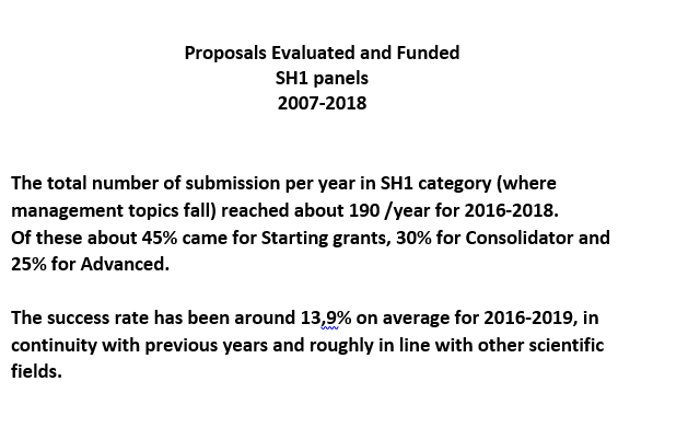

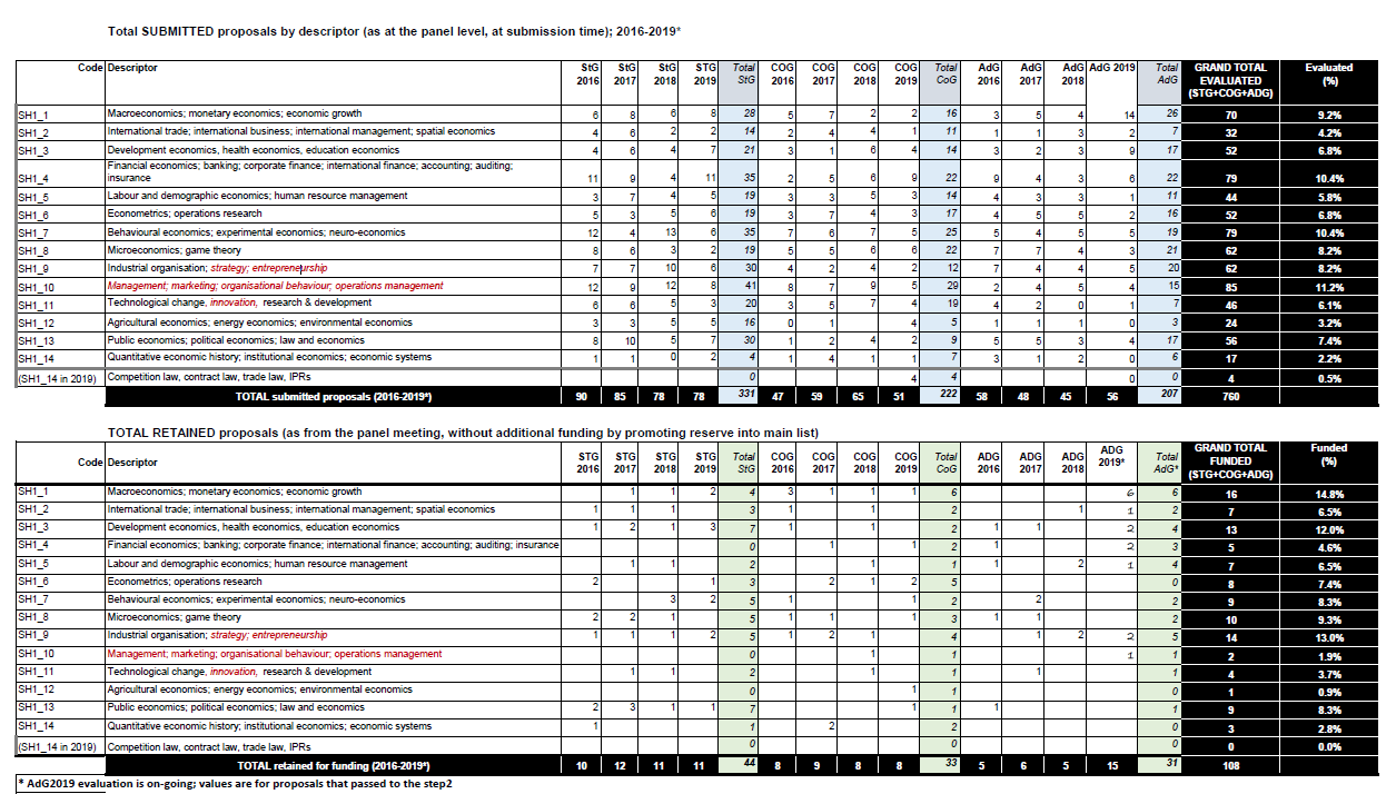
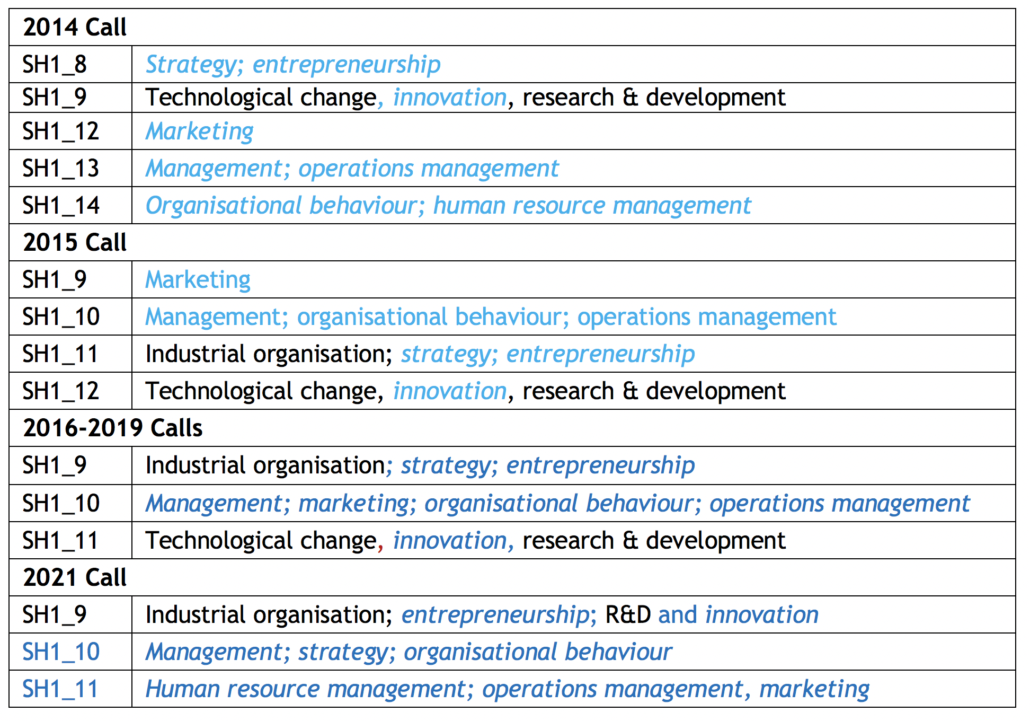
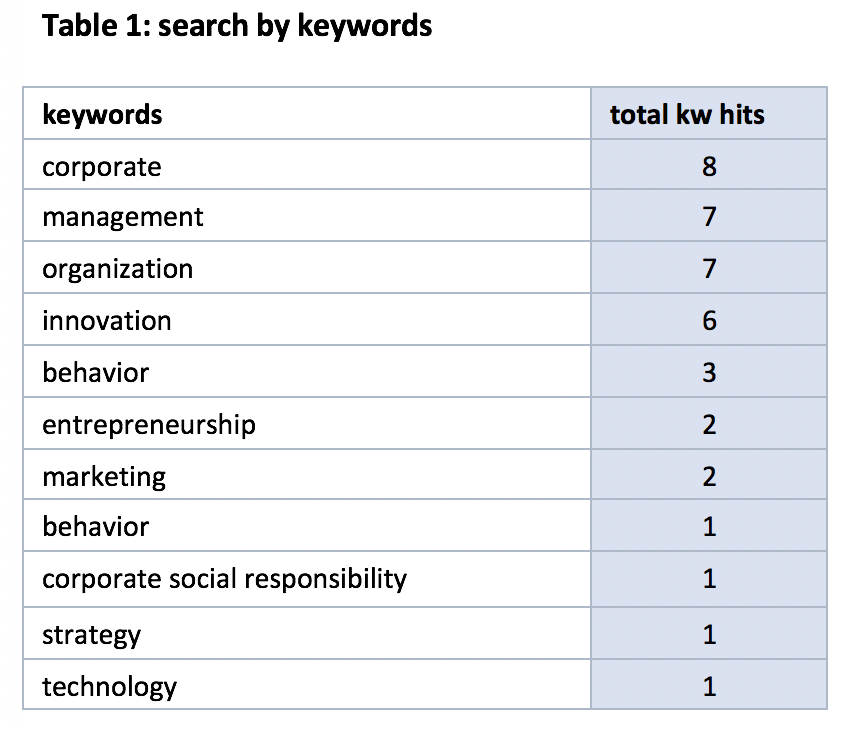


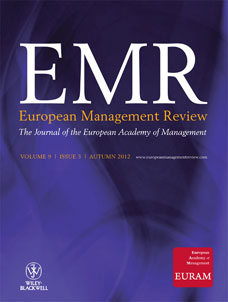
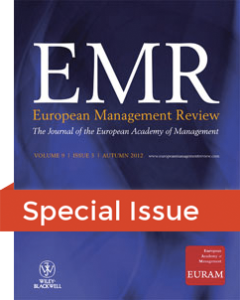
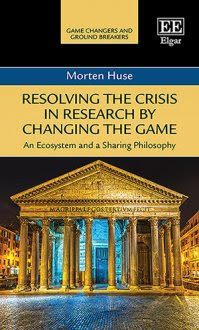 [SIG 01 – B4S – Business for Society] Resolving the Crisis in Research by Changing the Game
[SIG 01 – B4S – Business for Society] Resolving the Crisis in Research by Changing the Game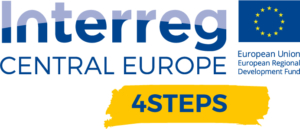 [SIG 06 – INNO – Innovation] The Interreg Central Europe project “4Steps” is addressing the main challenge of Industry 4.0 (Advanced Manufacturing) as a tool towards a new, digital industrial revolution holding the promise of increased flexibility in manufacturing, mass customization, increased speed, better quality and improved productivity. Project partners in the Central Europe area, has completed the Technology Readiness Status-Quo analysis in SMEs. Managers and decision makers of different companies in Central Europe – primarily SMEs – were interviewed and their approach to Industry 4.0 and digital transformation in companies was questioned. Based on the answers, a Technology and Innovation Maturity Index will be created in the following months at different levels: company level, country level, industry level, etc. For further information, please contact
[SIG 06 – INNO – Innovation] The Interreg Central Europe project “4Steps” is addressing the main challenge of Industry 4.0 (Advanced Manufacturing) as a tool towards a new, digital industrial revolution holding the promise of increased flexibility in manufacturing, mass customization, increased speed, better quality and improved productivity. Project partners in the Central Europe area, has completed the Technology Readiness Status-Quo analysis in SMEs. Managers and decision makers of different companies in Central Europe – primarily SMEs – were interviewed and their approach to Industry 4.0 and digital transformation in companies was questioned. Based on the answers, a Technology and Innovation Maturity Index will be created in the following months at different levels: company level, country level, industry level, etc. For further information, please contact  [SIG 06 – INNO – Innovation] User-oriented process (re)design and information systems modelling – a case of smart city services.
[SIG 06 – INNO – Innovation] User-oriented process (re)design and information systems modelling – a case of smart city services.